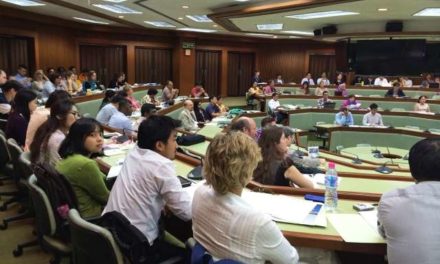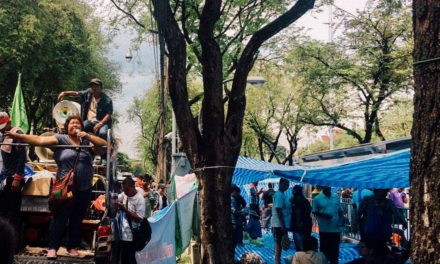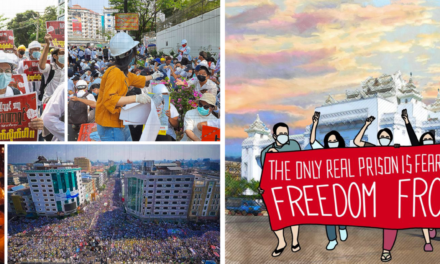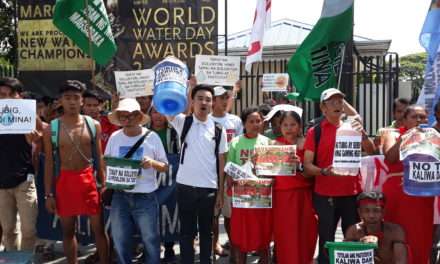By WALDEN BELLO
http://bworld.com.ph/current/TopStories/topstory8.html
This writer is often a shade cynical when discussions drift to the President, who has been one of the most calculating political animals ever to stride the Philippine scene. But to be fair, the decision she made to save Angelo de la Cruz was not based mainly on political calculation. It came from simple humanity: like most of her countrymen and women, President Arroyo simply could not allow a fellow Filipino to die owing to a commitment to an abstract principle like “not giving in to terrorists.”
Of course, political calculation there was, too. Arroyo stumbled onto the hostage crisis following a chain of events in which the legitimacy of her electoral victory was widely questioned, especially among the lower classes that voted for her opponent, Fernando Poe, Jr., in large numbers.
She knew that allowing de la Cruz to be beheaded would have sparked massive protest from the marginalized millions many of whose family members have been forced to work overseas to make ends meet. She probably remembered the fury sparked by the condemnation to death and execution of Flor Contemplacion, except that this time, it would be directed not at a foreign government, not at the hostage-takers, but at her.
Incurring the displeasure of what now seems to be a lame-duck US administration, about to be booted out by American voters for invading Iraq, seemed much less risky for her future than provoking another EDSA III.
That the Bush people would criticize Arroyo is expected, for the loss of the Philippine contingent is one more figleaf stripped away from an illegal US invasion and occupation of a sovereign country.
What one cannot understand is the logic of some of those advocating a hardline position that would result in the cutting off of the head of Angelo. OK, one can understand macho men like Fidel Ramos and Roilo Golez preferring Angelo’s head to roll in defense of a stern abstraction. But Solita Monsod? Along with the country’s principal expert on Iraq, Herbert Docena, who used to be Winnie’s student, I cannot believe that one of the University of the Philippines’ finest minds would succumb to a bogus argument.
Winnie, surely you don’t believe all that stuff about never compromising with terrorists. Never, never compromise with terrorists? Come on, surely you remember that even Ronald Reagan hurriedly withdrew the US Marines from Lebanon when a suicide bomber killed 241 of them in October 1983?
Surely, you know that, in the case of Angelo de la Cruz, conciliating terrorists is not the issue — that the fundamental issue is our participation in and legitimation of the illegal occupation of a country that was undertaken under false pretexts in the first place?
We may denounce the methods of the hostage takers, but were they not simply confronting us with a stark truth that our government refused to face without the equivalent of shock therapy: that we were part of an illegal occupation force?
In withdrawing the Philippine military and police contingent from Iraq, President Arroyo may have taken a first step in liberating our foreign policy. Now that the toughest decision has been made, it would be logical for her to take the further step of acknowledging that the Philippines participated in the implementation of a wrong policy that has cost the Iraqi people so much in terms of lives, property, and security. An formal apology to the Iraqi people for allowing our government to be dragged into Bush’s savak we is in order and would be greatly appreciated. But the implications of President Arroyo’s move go beyond Iraq. The conjuncture presents a golden opportunity to break with what has long been the No. 1 tenet of Philippine foreign policy-submission to the United States — and take the Philippines on an independent course that befits an independent country. A major move in this direction would be to reject the proposed joint RP-US military exercise in Carmen, Cotabato. As Richard Clarke, former anti-terrorism czar of the Bush administration, has argued, Bush’s hardline policies against terrorism are not working anywhere. We need to work out our own approach without Ambassador Ricciardone and US Green Berets overseeing our every move. The Angelo de la Cruz incident has provided an opportunity for the president to stop playing the role of a politician and step into that of stateswoman for a change. This writer certainly hopes that she will rise to the challenge.









